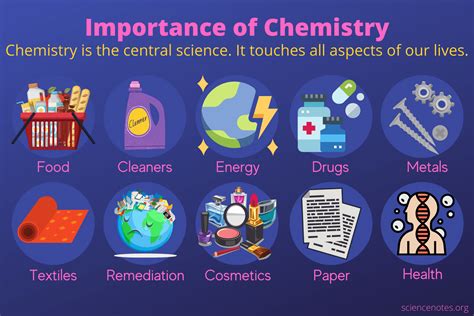Chemistry is a branch of science that deals with the properties, composition, and behavior of matter. It is a vast and complex field, and there is a lot to learn. In this article, we will provide a brief overview of some of the most important things that you will learn in chemistry.

The Basics of Chemistry
The first thing that you will learn in chemistry is the basics of the subject. This includes topics such as:
- The structure of atoms
- The periodic table
- Chemical bonding
- Chemical reactions
These topics provide the foundation for all of chemistry, and they are essential for understanding more advanced concepts.
Chemical Reactions
Chemical reactions are one of the most important aspects of chemistry. They are the processes by which atoms and molecules interact with each other to form new substances. In chemistry, you will learn about the different types of chemical reactions, how they occur, and how they can be used to create new materials.
States of Matter
Matter can exist in three states: solid, liquid, and gas. In chemistry, you will learn about the properties of each state of matter and how they can be changed. You will also learn about the different phase transitions that can occur between states of matter.
Solutions
Solutions are mixtures of two or more substances. In chemistry, you will learn about the different types of solutions, how they are formed, and their properties. You will also learn about the different methods that can be used to separate solutions.
Acids and Bases
Acids and bases are two important types of chemicals. In chemistry, you will learn about the properties of acids and bases, how they react with each other, and how they can be used in everyday life.
Organic Chemistry
Organic chemistry is the study of carbon-containing compounds. In chemistry, you will learn about the different types of organic compounds, how they are formed, and their properties. You will also learn about the different reactions that organic compounds can undergo.
Biochemistry
Biochemistry is the study of the chemical processes that occur in living organisms. In chemistry, you will learn about the different types of biomolecules, how they are formed, and their functions. You will also learn about the different metabolic pathways that occur in cells.
Applications of Chemistry
Chemistry has a wide range of applications in everyday life. In chemistry, you will learn about the different ways that chemistry is used in fields such as:
- Medicine
- Agriculture
- Industry
- Environmental science
Careers in Chemistry
There are many different careers that you can pursue with a degree in chemistry. Some of the most common careers include:
- Research scientist
- Chemical engineer
- Pharmacist
- Teacher
- Environmental consultant
Conclusion
Chemistry is a vast and complex field, but it is also a fascinating one. By studying chemistry, you can learn about the world around you and how it works. You can also develop the skills that you need to pursue a career in a variety of fields.
Additional Resources
What Does a Chemist Do?
Chemists are scientists who study the composition, structure, properties, and reactions of matter. They use their knowledge to develop new materials, solve problems, and improve our understanding of the world around us.
Chemists work in a variety of settings, including universities, research institutes, and industry. They may be involved in basic research, applied research, or development.
Some of the tasks that chemists perform include:
- Conducting experiments to study the properties of matter
- Analyzing data to identify patterns and trends
- Developing new theories and models to explain chemical phenomena
- Inventing new materials and processes
- Solving problems related to the environment, energy, and health
Chemists play a vital role in our society. They help us to understand the world around us and develop new technologies that improve our lives.
Types of Chemistry
There are many different types of chemistry, including:
- Analytical chemistry is the study of the composition and structure of matter.
- Biochemistry is the study of the chemical processes that occur in living organisms.
- Inorganic chemistry is the study of the elements and their compounds.
- Organic chemistry is the study of carbon-containing compounds.
- Physical chemistry is the study of the physical properties of matter.
Each type of chemistry has its own unique set of principles and techniques.
Careers in Chemistry
There are many different careers that you can pursue with a degree in chemistry. Some of the most common careers include:
- Research scientist
- Chemical engineer
- Pharmacist
- Teacher
- Environmental consultant
Chemists are employed in a variety of industries, including:
- Pharmaceuticals
- Chemicals
- Food
- Energy
- Environmental protection
The median annual salary for chemists is \$76,790.
Education and Training
To become a chemist, you need a strong foundation in math and science. You will also need to complete a bachelor’s degree in chemistry. Some chemists also go on to earn a master’s degree or doctorate.
There are many different colleges and universities that offer chemistry programs. Some of the most popular programs include:
- University of California, Berkeley
- Massachusetts Institute of Technology
- Stanford University
- Harvard University
- Yale University
Once you have completed your education, you will need to pass a licensing exam to become a certified chemist.
Continuing education is important for chemists. The field of chemistry is constantly evolving, so it is important to stay up-to-date on the latest developments.
Conclusion
Chemistry is a challenging but rewarding field. It is a great choice for students who are interested in math and science. With a degree in chemistry, you can pursue a wide range of careers in a variety of industries.
